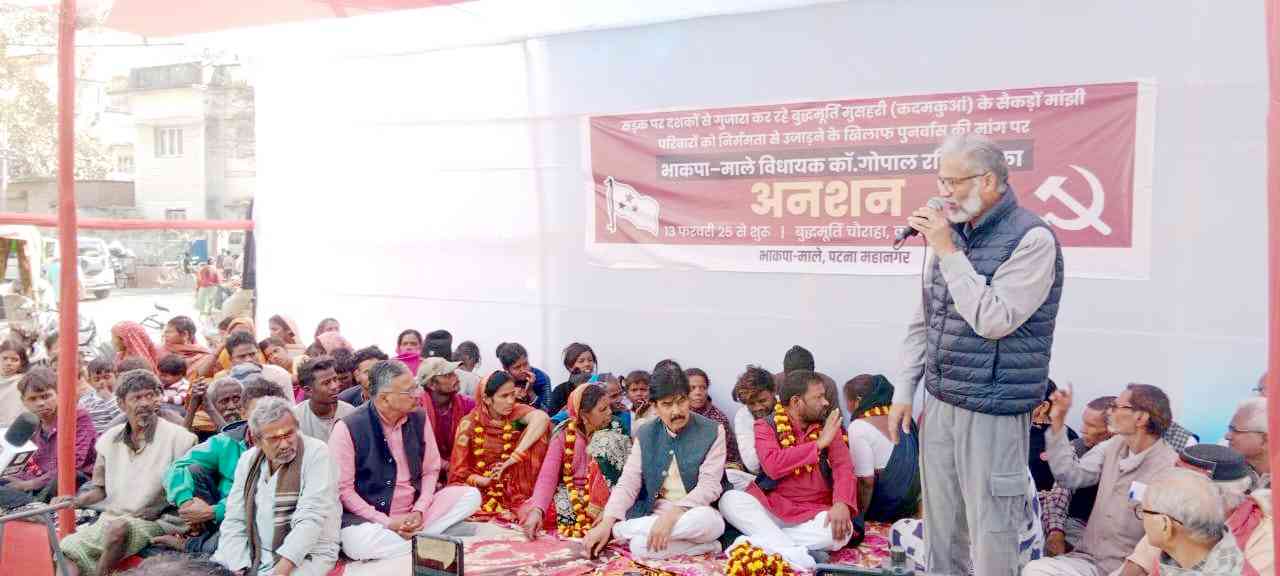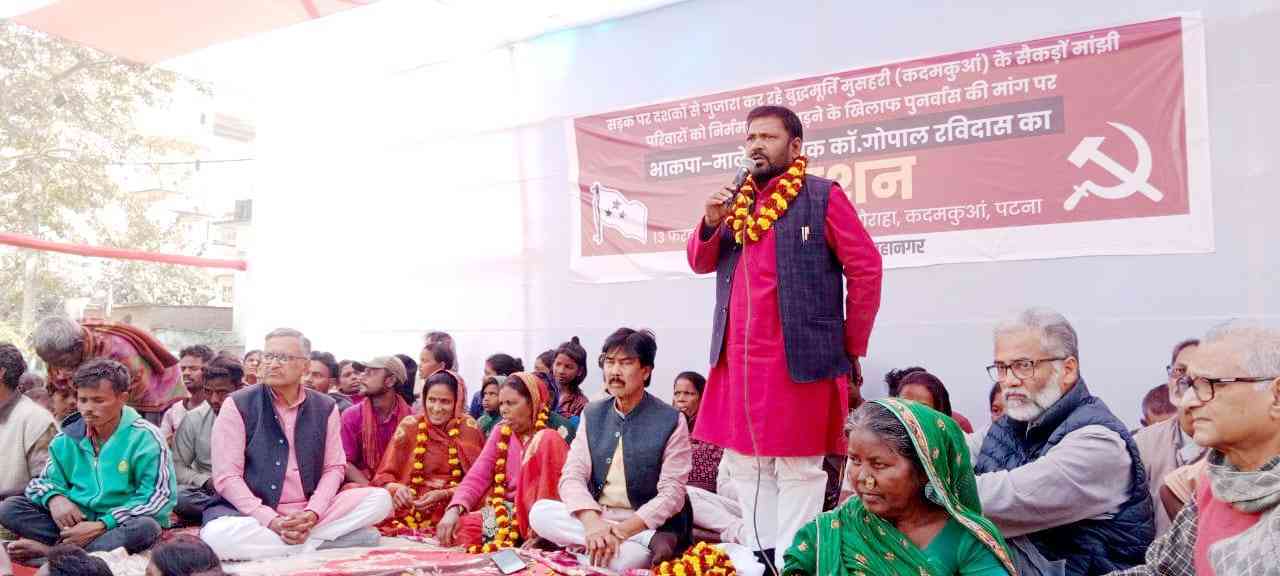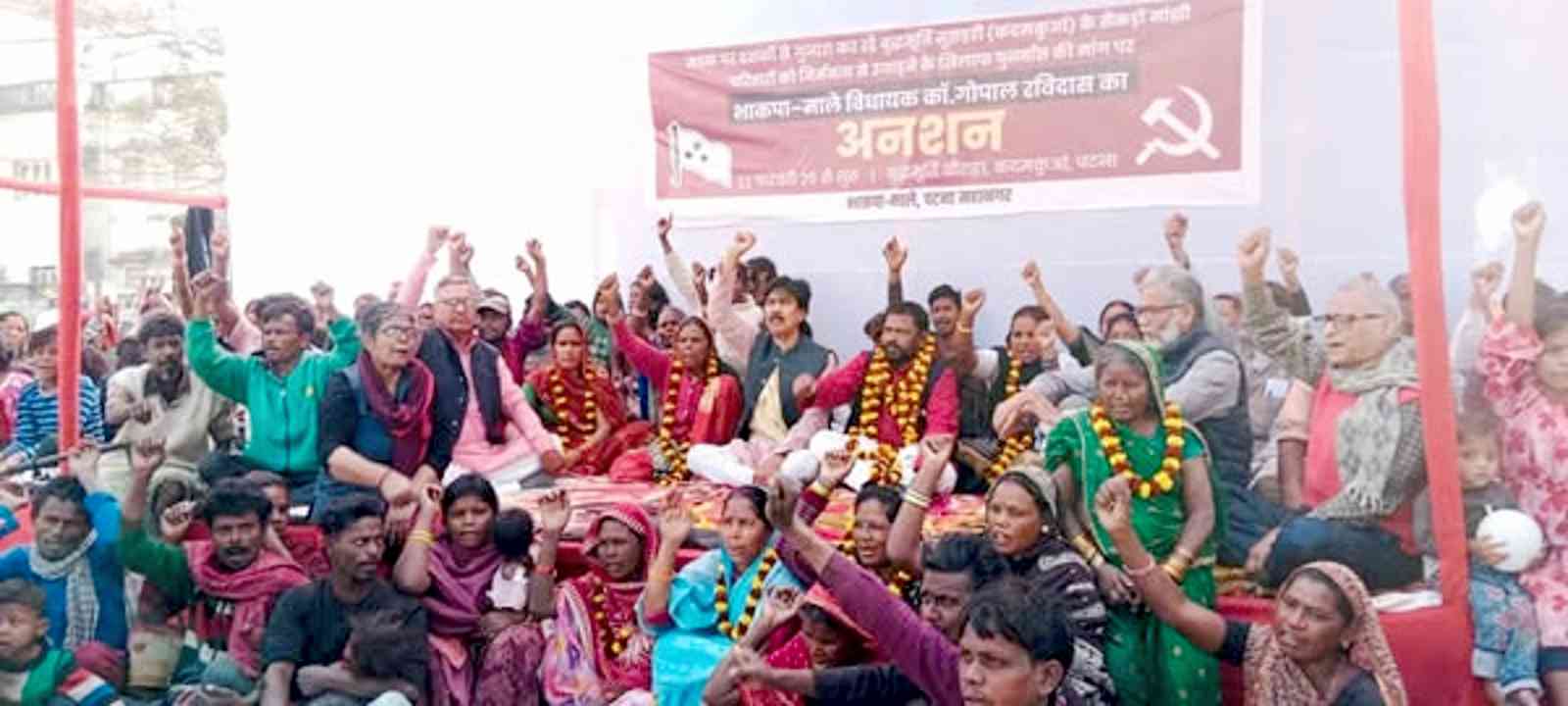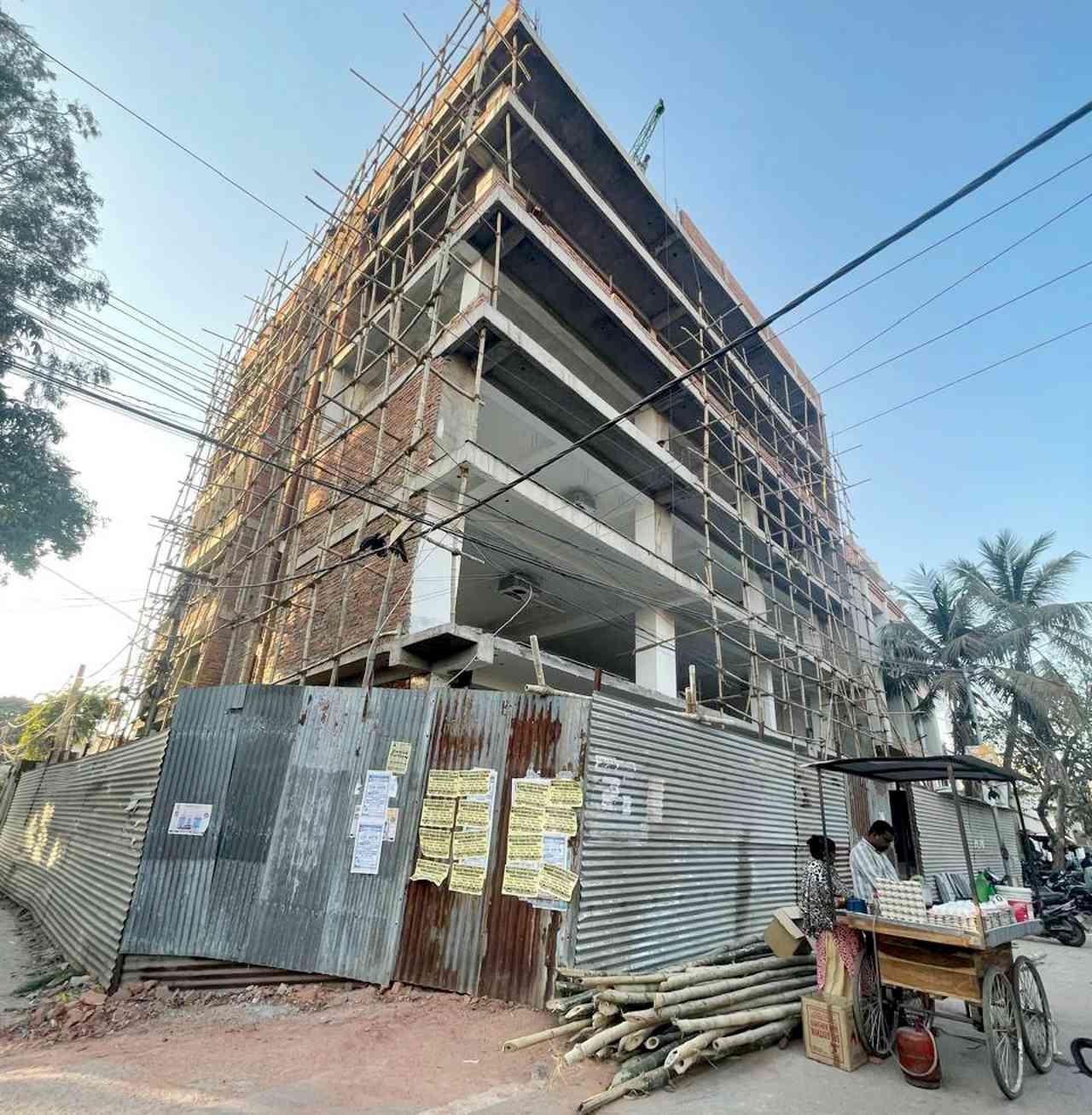CPIML’s Struggle to Continue Until Resettlement of Displaced Manjhi Community

CPIML General Secretary Dipankar Bhattacharya condemned the BJP’s bulldozer politics, warning that Yogi Adityanath’s model of repression would not be tolerated in Bihar. Standing in solidarity with the displaced Manjhi community (Musahar community) at Buddha Statue Chowk on 13 February, he held the Nitish Kumar government responsible for systematically displacing Dalits and the poor while failing to implement a resettlement policy in the past 20 years.
CPIML along with victims of the displacement began hunger-strike against the government’s inhuman move. CPIML MLA Gopal Ravidas along with affected Manjhi community members, including Sitabiya Devi, Seema Devi, Laxminiya Devi, Chhotu, and Kaushalya Devi, began fasting in protest.
Comrade Dipankar called out Jitan Ram Manjhi, demanding that he stand with his community rather than remain complicit in the oppression. Bhattacharya directly accused the government of uprooting Manjhi families to make way for the Deputy Chief Minister’s luxury residence, exposing the nexus of power and land grabbing in Bihar.
On the second day of the protest, large numbers of Dalit and Manjhi community members from across Patna joined the demonstration. Addressing the gathering, Gopal Ravidas launched a scathing attack on the Modi-Nitish double-engine government, accusing them of forcibly evicting Dalits and the poor from their ancestral lands while allocating valuable land to land mafias and powerful individuals.
CPIML MP from Ara, Sudama Prasad, also visited the protest site at Buddha Statue and expressed solidarity with the hunger strikers. He assured that the demand for the resettlement of the Manjhi community would be raised in the Lok Sabha. He questioned the massive urban development budget of the double-engine government and demanded to know why funds were not allocated for the rehabilitation of urban poor, street vendors, and labourers. Sudama Prasad highlighted the eviction crisis affecting the poor and demanded immediate resettlement of the displaced Manjhi families. He reiterated CPIML’s commitment to fighting for the rights of the landless and urban poor.
Prominent social activists and leaders, including Vandana Prabha, Prof. Shobhan Chakravarti, CPIML State Committee members Jitendra Kumar, Anuradha Devi, Anay Mehta, RJD leader Phulena Ravidas, Navlesh Yadav, Mantu Sahu, Gurudev Das, Sharifa Manjhi, Manoj Manjhi, Chandra Bhushan Sharma, Tapeshwar Manjhi, Suresh Prasad, Vibha Gupta, Patna Municipal Secretary Abhyuday, and AICCTU leader Ranvijay Kumar, addressed the gathering.
The hunger-strike concluded on 15 February and witnessed a large number of students, workers, and activists joining the demonstration. Women from the affected families recounted their ordeal and demanded that the government immediately allocate alternative land for their resettlement.
CPIML MP Rameshwar Prasad, who visited the protest site near the Buddha Statue, declared that the party would continue its struggle until the permanent resettlement of the displaced Manjhi community is ensured. He stated that the Executive Officer of Patna Municipal Corporation had assured that there would be no further eviction until resettlement arrangements were made, following which the hunger strike was called off. CPIML MLA Gopal Ravidas offered juice to the protesters to formally conclude the strike.
Addressing the gathering, AIPWA General Secretary Meena Tiwari pointed out that the impoverished Manjhi community had been residing near the Buddha Statue for three decades without receiving any resettlement from the government. She said that the Nitish government of displacing the poor under the guise of the Smart City project. She also urged people to participate in large numbers in the upcoming “Badlo Bihar Mahajutan” [Transform Bihar] rally on 2 March at Gandhi Maidan.
The CPIML leadership warned that if the government failed to act, they would escalate the struggle by mobilizing people across Bihar.



Charu Bhawan, U-90, Shakarpur, Delhi 110092
Phone: +91-11-42785864 | +91 9717274961 E-mail: info@cpiml.org

